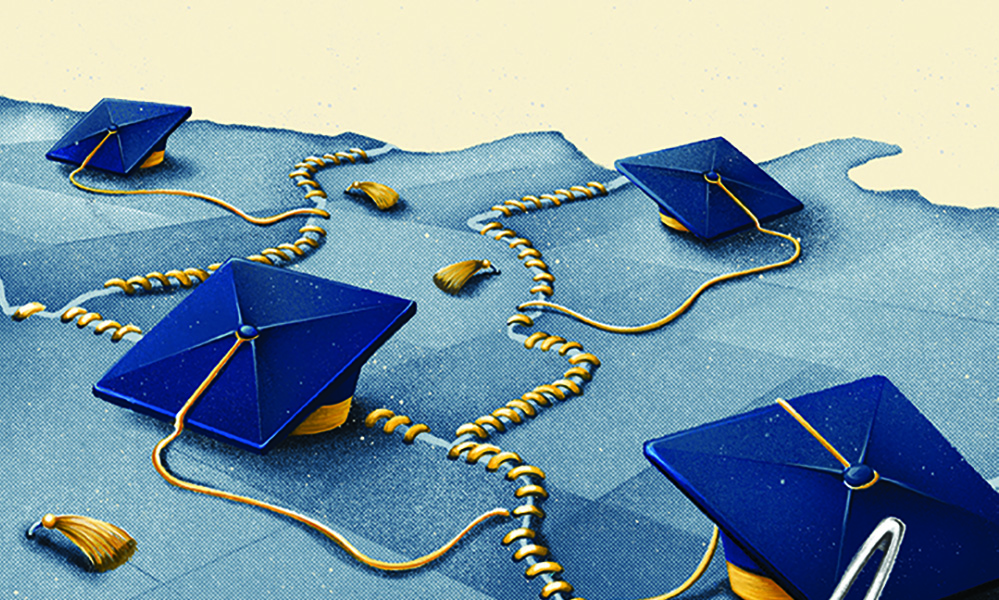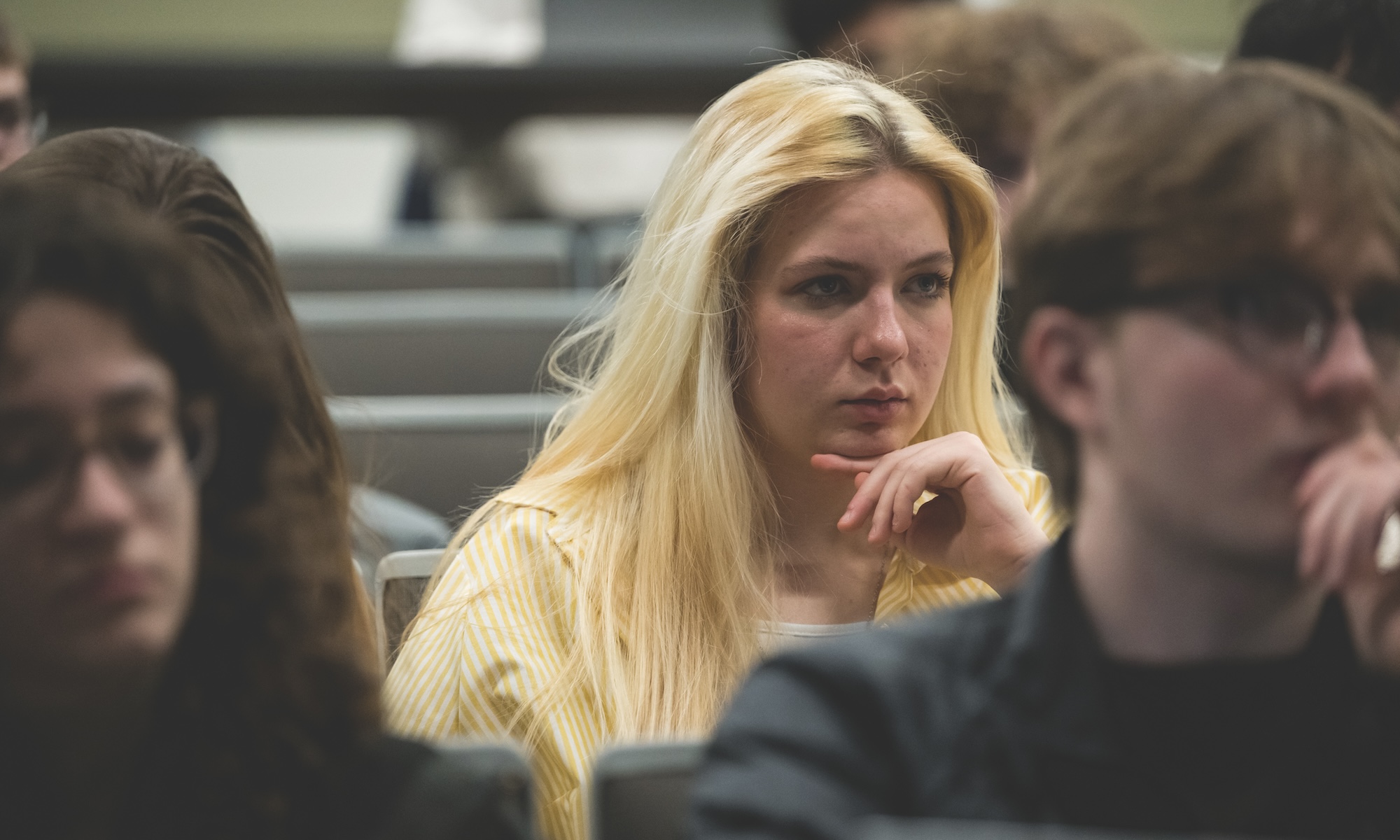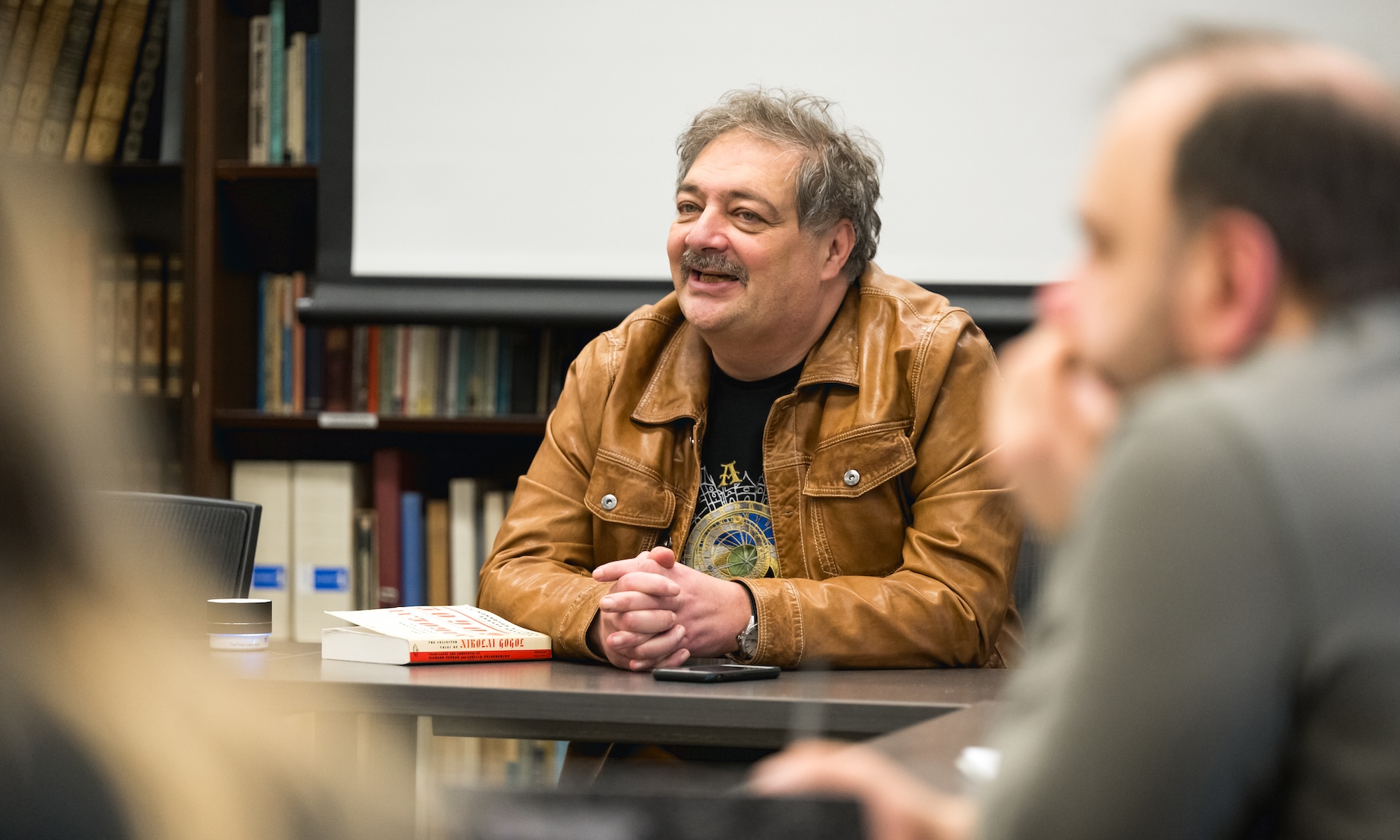An Afghan scholar and refugee conducts research at the University’s Susan B. Anthony and Mt. Hope Family centers.
Less than three years ago, Baitullah Hameedi held a secure position on the faculty of Kabul University. But after the Taliban returned to power in the aftermath of the United States military’s withdrawal from Afghanistan in August 2021, he fled, along with nearly 3.6 million other Afghans in the year that followed.
Now he’s a visiting scholar at the Susan B. Anthony Center, a position he holds through the 2023–24 academic year.
Hameedi applied for the role through Scholars at Risk, an international network that works with universities to find sanctuary and temporary appointments for scholars whose lives and careers are at risk in their home countries. The catch, however, is that universities must fund the positions themselves. In 2021, the University, which is an institutional member of the network, established the Global Emergency Response Fund, or “GERF,” with initial funding from Board of Trustees Chair Richard Handler ’83 and the Jefferies Group, the company he leads. So far, the fund has enabled positions for Hameedi and a small number of other Afghan scholars, and support and scholarships for students fleeing war and natural disasters.
Hameedi began a perilous journey to the United States and on to Rochester on August 31, 2021. At 2:43 p.m., a WhatsApp message from an unknown European number buzzed on his phone. “There is a possibility to leave today,” it read. “You should receive information soon.”
The text, from a French nonprofit, set in motion a harrowing escape, from Kabul to the northern Afghan city of Mazar-i-Sharif, to a chartered flight that took him, his wife, and two young children to Doha, Qatar, and then eventually to a US military base in New Mexico where they lived for two months in a sprawling
refugee camp.
“In Afghanistan we have smartphones, we have cars, we have streets,” Hameedi says. “But when you think of the development of society, we still live in the 19th century. Overall, our culture hasn’t yet caught up with modernization.”
Hameedi attended Jamia Millia Islamia, a university in New Delhi, for a master’s program in convergent journalism. It was in India that he first experienced a democracy, in all its complexity, at work. In 2017, he returned to Afghanistan and was promptly hired as a multimedia instructor in Kabul University’s nascent communications department.
With the advent of social media in Afghanistan, made possible after the temporary end of Taliban rule in the early 2000s, Hameedi enthusiastically embraced the greater freedom of expression it enabled. He became vociferous on Facebook, posting several times a day on the virtues of democracy and the need to educate women.
Before the Taliban’s return in 2021, the first cohort of communications students—male and female—had been set to graduate the following year—to Baitullah’s immense pride. As he prepared to leave, he knew that the young women among them wouldn’t be able to complete their studies.
“As a female student in Afghanistan, you’re not just fighting for good grades. You’re fighting the extremely patriarchal education system, often your own family, and also society—every time you step out the door,” Hameedi says, describing women’s challenges even before the Taliban regained control.
In the classroom, he often had to walk a fine line, respecting religious beliefs while carefully guiding his students toward asking critical questions, including who stood to benefit most from perpetuating female stereotypes in Afghan society.
This year at the Anthony Center, he has been helping with a research project involving victims and survivors of intimate partner violence. In addition, two days a week, he works at the University’s Mt. Hope Family Center as a cultural broker within a trauma therapy team that supports refugee students in upstate New York. He has developed resources to help families recognize the signs of mental health problems and understand the American school system and how to navigate it to support their children’s education. He also works with schools to foster cultural understanding.
“Sometimes American teachers say the students from Afghanistan will not look at them, interpreting the lack of eye contact as shiftiness or a sign of disrespect,” he says. Yet the opposite is true. “To look a teacher or a parent directly in the face is very disrespectful in Afghan society.”
“We are fortunate to host him,” says Anthony Center Director Catherine Cerulli. “Having Baitullah as a visiting scholar has been a remarkable experience for our students, staff, and faculty,” she says. “He speaks with the wisdom of an old soul, the heart of a fierce social justice advocate, and as someone with the lived experience of a harrowing journey to America.”
Once his appointment at Rochester ends, Hameedi is hoping to enter a PhD program in media and communications. He is keen to ensure that his family, and especially his wife, Yasamin, and their 11-year-old daughter, continue to receive a solid education. Yasamin is taking English classes in Rochester and plans to go back to school for a high school diploma or GED. Their daughter is now in 6th grade.
According to Hameedi, his wife is at once in awe of “how powerful American women are in so many ways” and yet intimidated by the idea of holding down both a job and running a household.
“I tell her ‘it’s not only the women doing the cooking or taking care of the family. Men do this here, too. It’s culturally accepted. Men are expected to be active partners.’ ”
This story was originally published in the spring 2024 issue of Rochester Review, the magazine of the University of Rochester.





